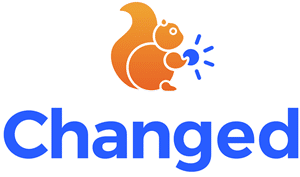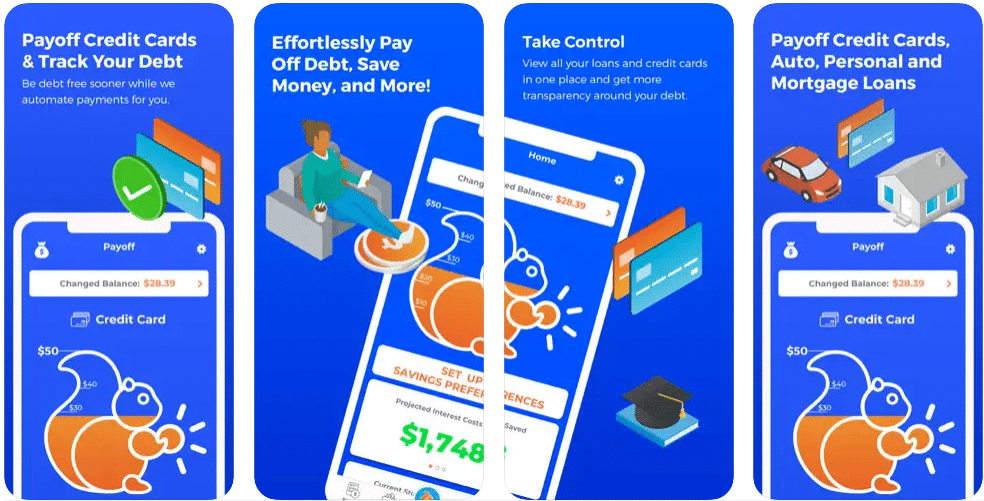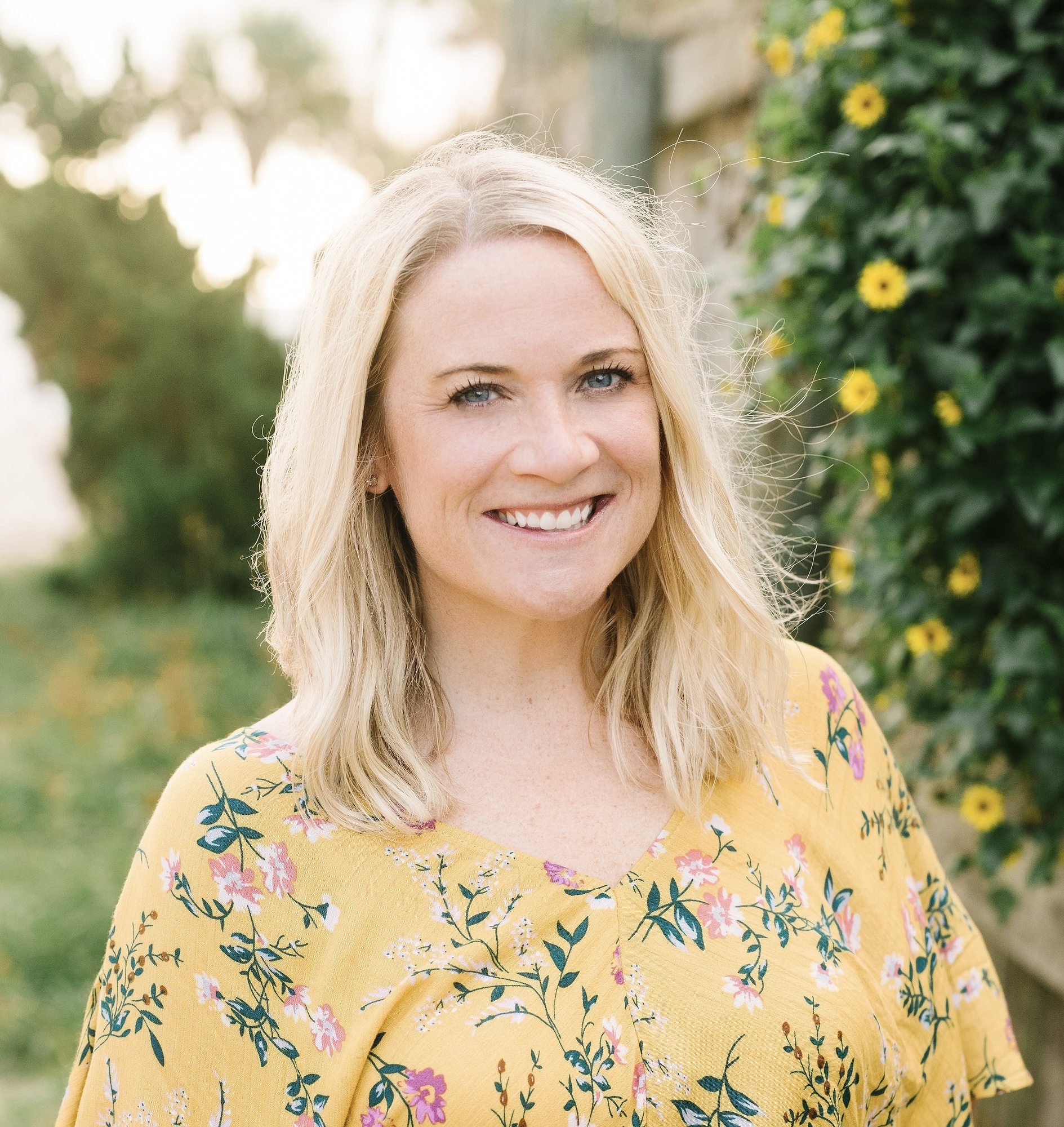Editorial Note: We earn a commission from partner links on Doughroller. Commissions do not affect our authors’ or editors’ opinions or evaluations. Learn more here.
Round-up apps are everywhere in the fintech space. Think, Acorns, Chime, and Stash.
The Changed app does things a bit differently. Instead of earmarking your round-ups to save or invest, this micro-saving app uses round-ups from everyday purchases to help you pay off debt.
Learn more about this round-up tool, how it can help you pay off debt, and whether it’s right for you and your financial situation.
What is the Changed App?

So how do round-up apps like Changed work? Putting it simply, they round up your purchase to the nearest dollar, then use the remaining “change” to achieve a financial goal, like investing, saving money, or, like Changed, paying off debt.
Let’s say you spend $7.38 on two large coffees. If you’re using a round-up app like Changed, the extra $0.62 will be earmarked towards specific accounts or goals. The idea is that since you’re already spending that money anyway, chances are, you won’t miss the extra change. It’s like the modern-day equivalent of your dad’s change jar.
And a micro-saving app? It’s exactly what it sounds like. These apps help you save money without even thinking about it by applying round-ups to your everyday purchases. The only issue? These savings can often be small and take time to add up.
Setting Up an Account
Setting up a Changed account is fairly easy. First, you’ll download the app, available either for Android or iPhone. Then you’ll input your name, birthday, phone number, and address, to open your Changed savings account. With this information, Changed opens an FDIC-insured account where your savings will go until it’s transferred to your loan provider. But more on that below.
Next, you’ll link the loans you want to start paying off with your Changed account, then choose which one you start chipping away at first. You’ll also link your bank accounts and choose which one you’d like to use for round-ups. Bonus—you can choose multiple accounts for round-ups.
Changed doesn’t store your account numbers. It just has you log into your bank account through the app, similar to Mint or other popular budgeting apps.
The Changed app charges a $4/month fee.
How Does Changed Work?
Once your account is set up, Changed gets to work. It rounds up every transaction from the first day your bank account is linked. So if you buy a cup of coffee for $1.27, they’ll count $0.73 as a round-up. And then later that day you purchase some groceries for $35.57, Changed will count another $0.43 towards your roundups.
It’s important to note that the Changed app doesn’t immediately apply your round-ups to your debt—there are a few more steps you’ll need to follow first.
Once your round-ups reach $5, Changed will automatically transfer it to your Changed savings account, which is FDIC-insured. Then, once that account reaches either $50 or $100, it will apply those funds to the debt you selected to pay off when you set up your account. With Changed, round-ups are limited to $10/day, so you don’t overdraft your account.
Changed also lets you split your payoffs between your debt and savings accounts, which is another nice feature. Want to hit your debt even harder? You can also send Boosts to your account, making paying off your debt that much faster.
Don’t forget about Stash My Cash, another feature from Changed, an automated savings account that lets you save for a big purchase or a rainy day. This gives people the ability to store extra cash so they can be in a better financial position when they’re ready to make their next financial goal or when unforeseen expenses arise.
The Changed app itself is well-designed and easy to use. Its charts and data show you just what an impact your spare change is making on your debt, interest paid, and the amount of time you’ll spend paying off that debt.
Customer Service
If you’re having issues or need help with your Changed account, you can email [email protected]. If you prefer to speak via phone, you can schedule a call via email.
Unfortunately, there is no published phone number and no live chat available. This means that you’re unlikely to get an immediate answer to your question.

Pros and Cons of the Changed App
Pros
- Low monthly cost: Changed only costs $4/month if you opt for the annual plan.
- Well-designed dashboard: Changed dashboard and its charts, statistics, and overall design help make saving easy. They’re also great for tracking your debt payoff progress.
- Compatible with different loans: Use Changed to make a dent in your student loan balance or to pay off a credit card. Changed is compatible with many different types of loans. You can even do manual transfers.
- Customizable: You can set up Changed to best serve you and your financial situation, from the option to send Boost payments to opting for a $50 or $100 payout threshold.
- Savings Boost: This feature allows you to add an extra boost to your savings. It can be used up to 1x a day.
Cons
- High payment threshold: Before payouts are made, your account must hit $50 or $100, depending on the option you choose when you set up your account. This means it can often take months before even a single payment is applied toward your debt.
- Only debit card-friendly: If you primarily use cash for everyday purchases, then Changed might not be for you. Changed also isn’t compatible with credit cards.
- No round-up flexibility: Some apps let you put additional rules into place when it comes to round-ups. Changed doesn’t currently allow rule-setting, so you’re stuck with the simple rounding up of your transactions, though you can use Savings Boost to put more toward your savings.
- Limited customer service: You only have an email option for customer service, though you can schedule a call via email.
- Can take a long time to pay off debt: Since Changed only uses round-ups, and you have to meet a certain threshold before your money is applied to your loans, it can take longer to pay off your debt. If you need to pay off debt aggressively, then Changed may not be the right move for you.
Alternatives to the Changed App
Acorns

Acorns is another app that gets you saving automatically but this one is more focused on investing than paying down debt. For a limited time, you can earn a $20 bonus for signing up and setting up a simple $5 automatic investment.
With Acorns, you will receive a debit card that offers withdrawals at more than 55,000 ATMs nationwide. When you use your debit card for purchases, it rounds up to the nearest dollar, and the extra is reinvested into your portfolio.
Stash

Stash is another investing-focused round-up app that will offer new users a $5 sign-up bonus after they deposit at least $5. You can invest in fraction shares, which means for just a few dollars, you own part of Google, Microsoft, Nvidia, or almost every other stock.
Stash has two paid plans. One is $3 a month and offers basic features and investing options and the other is $9 a month which offers cash back on debit card spending and greater investment opportunities.
Who Is The Changed App Best For?
Changed is a great app if you want to pay down debt or start saving without really thinking about it. It’s also best for those who use a debit card for everyday purchases since the app utilizes your debit account to both analyze your spending habits and for round-ups. While it won’t help you make big payments toward your debt, you can utilize both a round-up and a daily Savings Boost to help dent it.
Changed can help you make incremental progress on your debt, which can help get the ball rolling for payoff. It can also save you money in interest, even shaving years off the loan’s duration. But if you’re a frequent credit card spender or if you need to pay off debt more aggressively, Changed may not be best for you.
Also read: Best Round-Up, Automated Savings and Micro Savings Apps
Frequently Asked Questions (FAQ)
What kind of loans can I pay off with the Changed app?
The changed app covers all loan servicers and even offers a manual option if your loan isn’t listed.
How are my transactions rounded up?
Changed rounds up your spending to the next dollar. So, if you spent $2.65 on a cup of coffee, the remaining $0.35 will be put in your Changed savings account.
Can I use Changed to help my loved ones pay off their loans?
Yes! You’ll just need to set up a Changed account in your name. Then, when it asks for loan details, be sure to put your loved one’s name. Easy-peasy.
Can I save more than just round-ups?
Use the Changed Savings Boost tool once daily to add additional payments to your Changed savings account.
Changed is asking me for the name on the loan. What does that mean?
When you’re looking at the loan information, the name on the loan is the person who took out the loan. You’ll need this information to set up your Changed account for yourself or someone else.
The Bottom Line
Like many round-up apps, Changed is a great tool for those who want to focus on paying off debt without thinking about it. It can help you pay down the loan more quickly and pay less interest over time, another plus.
But Changed isn’t a fool-proof debt payoff plan, since it only allows you to contribute incremental amounts to your payments. So if you’re focusing on paying off debt, you may want to use another strategy—or use Changed in tandem with other debt payoff tools.
Changed

Summary
With Changed, you can save money every day and pay down debt automatically. Every purchase you make is rounded up and the extra cents will slowly wash away your debt.

